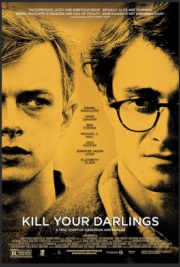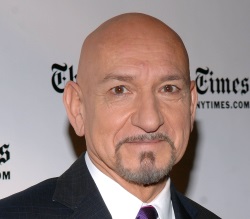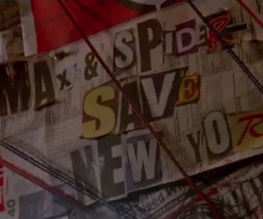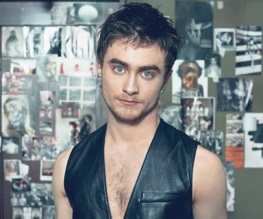Kill Your Darlings

Kill Your Darlings is about Allen Ginsberg. Don’t be put off if you’re bored by films about him! Furore around the picture relates to Daniel Radcliffe’s performance and a brief interlude of gay sex. Yes, Ginsberg is renowned for being gay – so what? To write this film off as simply a coming-out-romance would do a disservice to a brilliant cast and a talented writer-director-producer.
This is a thriller, a love story and a film with many more layers than it first seems…
Daniel Radcliffe has the unenviable task of being the star and draw of this movie whilst playing a character who basks in the reflection of others more self-assured. The film begins with Radcliffe’s Ginsberg as a freshman at Columbia. His young frame hides a strength of mind that will later mark out his career. Ginsberg is entranced by Lucien Carr (Dane De Haan), a lively older boy with pretty come-hither eyes and the blondest hair. Through Carr, Ginsberg meets writers William Boroughs (Ben Foster), Jack Kerouac (Danny Huston) and Professor David Kammerer (Michael C Hall) as the group form a tightly-wound group of drug-taking, world-changing poets – the Beat Generation.
Carr’s Aryan looks are set against a backdrop of World War II – far away in Europe for Ginsberg and his college pals, but affecting them through wireless updates of relations off to fight – and a very strict 1940s America. There’s a sense of menace throughout as Kill Your Darlings is a title that encompasses the entire plot. It relates to both the destruction of fruitless words if they are not good enough for a writer’s story and the notion that someone can love someone deeply and simultaneously wish to murder them. Hooked yet?
Radcliffe is so very good that he is a joy to watch – from Ginsberg’s voice and Jewish affectations to his undisguised glee at escaping an unstable mother. It’s what all actors strive for, I felt that he was Ginsberg in pleasure and ecstasy, and he gets to explore the spectrum from joy to agony in a couple of hours, but new director John Krokidas draws from Radcliffe his best performance to date.
It’s an especially good performance as Radcliffe is up De Haan’s Carr who has the opportunity to scene-steal at all times. But it’s Ben Foster’s dry, pointed portrayal of Burroughs that won me over. Krokidas has all the flavours here to evoke the creation of a generation, both raw heterosexual and homosexual high spirits. Meanwhile, Michael C Hall probably wanted a role that’s different from Dexter – but Kammerer veers from beast to fragile bird in the space of second, showing that he’s still a screen menace.
I would have to be very picky to think of something bad to say about Kill Your Darlings – the female characters (especially Elizabeth Olsen’s as Kerouac’s girlfriend Edie Parker) are underused, but then this is a specific story of a meeting of five male minds. There’s also a little too much tinkering with theatrical devices; time and music slow down, speed up, rewind, there’s modern music (The Libertines etc.) – you get the drift. Krokadis wants to tell a period story and use fancy new cinematic tricks.
Now for the gay bit. Homosexuality was a whisker away from perversion in the mind of the nation at this time, and Carr’s split-personality, forever torn between physical feelings of lust and self-disgust, is really well done. The tension between Carr and Ginsberg is ever tauter because then falling in love represented a descent into depravity. Yes there is realistic sex, but this is more about the power of suggestion than porno.
Full of well-judged, nuanced and realistic performances this is one of the best feature directorial debuts I have ever seen. There are many films out there that were borne out of the protagonists of this story – be it Naked Lunch, On The Road or Howl, but I say start here – at the beginning – with Kill Your Darlings. You won’t regret it.





Recent Comments